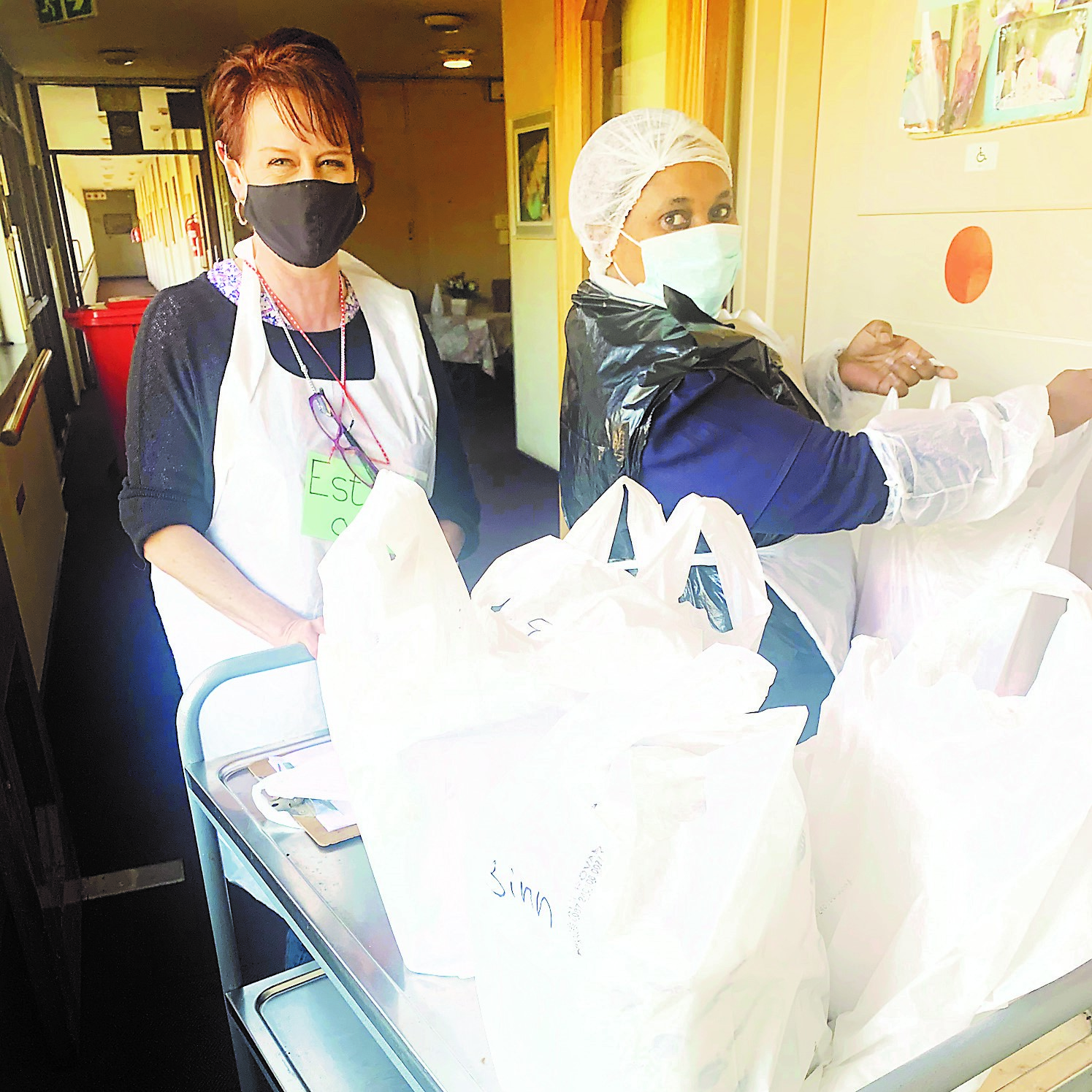
SA

Pretoria’s Jaffa old age home hit by coronavirus
TALI FEINBERG
“We are pulling together, getting on with things, and hoping to contain it,” says Jaffa Director Mark Isaacs.
The majority of those who tested positive are asymptomatic, and their condition is being monitored regularly for any change. Two residents had mild respiratory symptoms at the time of diagnosis.
Four residents are in now in hospital. One was admitted after a regular screening found that his condition had worsened. Subsequently, three more were admitted as an extra precaution due to their comorbidities.
On 15 March, Jaffa went into early lockdown in conjunction with the guidelines set up by the Chevrah Kadisha and other Jewish homes around the country. And, just like the Glendale Home for the Intellectually Disabled and Highlands House for the Jewish Aged in Cape Town, it’s unclear how COVID-19 managed to fight its way inside.
Under this strict lockdown, Isaacs says, “We reduced staff trips in and out by rearranging shifts and having more stay on the premises for a full seven-day shift, and then changing shift the following week. All staff was monitored on a daily basis when entering and leaving the home.”
However, the coronavirus problem at Jaffa was picked up by accident. “A resident required admission to a local private health facility on 16 June for an unrelated medical ailment, underwent routine pre-admission testing for coronavirus infection, and was found to be positive,” says Isaacs. “No clinical suspicion of coronavirus infection was present prior to admission. She has subsequently been discharged back to Jaffa in a stable condition.”
On 17 June, the home was notified of the positive result. “The management committee, all staff, and residents were subsequently informed of the situation. The home went into ‘full lockdown’, where residents confine themselves to their rooms, and relevant government departments and communal groups were notified.
“Testing was arranged on the premises for all staff and residents using a private laboratory, and all costs of non-medical-aid testing was carried by the facility. The testing process was assisted by an infectious disease nursing specialist made available to the home, and expedited by the pathologist working at the private laboratory concerned. Testing began on 17 June, and was concluded on 18 June. At the time of testing, there was no clinical suspicion of COVID-infection in any of the staff or residents,” he says.
Each resident’s own doctor was informed of their result, and management of each specific resident was individualised accordingly. Twice daily screening of all staff and residents for symptoms was initiated. A nursing matron is recording all vital statistics, including oxygen saturation measurements, regularly throughout the day to screen for deterioration or new symptoms and to make sure any symptoms or anomalies are reported to a doctor.
All residents and staff are required to wear masks at all times, and deep cleaning and sanitising is taking place continuously
All visits to the gate are now prohibited, shopping outside has stopped, and goods brought into the home are made available only after cleaning and quarantine. Members of the management committee are assisting with the procurement of items residents need.
All non-essential staff have been encouraged to stay at home until they have tested negative. Staff who tested positive were sent home to self-isolate for 14 days. They will return to work only after this time and if they test negative.
Residents, families, and staff were informed of their results as soon as they became available. While in their rooms, all the residents’ needs have been met, including meals provided in disposable containers.
“Staff use full PPE [personal protective equipment] during interactions with positive residents, including masks, visors, gloves, aprons, and ponchos. There is one resident per room, and couples with different results have been isolated separately,” says Isaacs.
“An online meeting was held with facilities around South Africa confronted by the same concerns. Information was shared, and our practices differ minimally from those elsewhere.”
The home has also procured additional PPE, oxygen concentrators, and other equipment. Its occupational therapy department has helped with exercises and activities for residents.
To support the residents through this period, Isaacs says messages of support can be sent to jaffa.org.za, where one can also donate. “Above all, please pray for our well-being.”
Meanwhile, all the residents of Glendale in Cape Town have come through the 14-day quarantine period unscathed, and are doing well. “Of the 21 residents who tested positive for the virus, 20 showed symptoms, and at any stage of the two weeks, up to four residents required oxygen. As of Monday, 22 June, which was day 14, they are all off oxygen, and many are no longer showing symptoms,” says the home’s chairperson, Judith Cohen.
“We have been told that once we have passed day 12 to 14, we should be out of the ‘danger zone.’ We are still carefully monitoring residents and are starting to consider whether we can move from ‘room lockdown’ to ‘unit lockdown’,” she says. “COVID-19 is fickle, and there is a possibility of it entering the home again. However, for now, all our residents are clinically stable. It is a miracle.”




